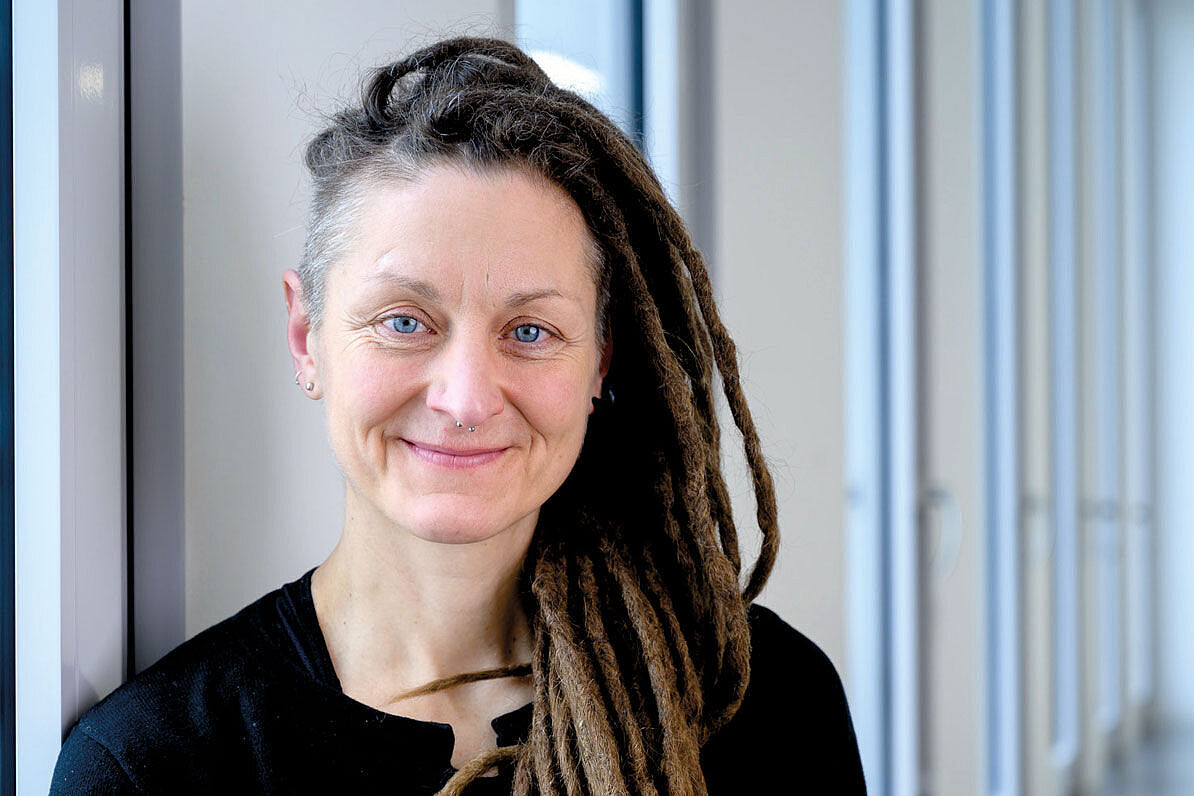Berlin scientist pursues new idea on the role of Tau proteins
Berlin/Germany, November 23, 2023. Susanne Wegmann, PhD, a biophysicist at DZNE’s Berlin site, has been awarded a prestigious Consolidator Grant of around 2.2 million euros by the European Research Council (ERC) to investigate whether so-called Tau proteins have a hitherto unconsidered relevance for energy management in neurons. The five-year research project could reveal approaches for novel therapies against Alzheimer’s and other brain diseases.
Tau proteins occur naturally in every neuron: They usually stabilize the framework of the cell, along which substances essential for the cell’s metabolism are transported. However, in Alzheimer’s and other brain diseases, Tau proteins detach from the cytoskeleton, their distribution within the cell changes and they stick together to form tiny clumps: as a result, the mechanical structure and function of the cell are compromised and ultimately it dies off. “These events are preceded by other processes that cause the situation to escalate. It’s a kind of domino effect. Towards the end, Tau gets involved. This protein then becomes the executioner and delivers the death blow to the neuron. Yet Tau is actually a helper and important for the cell’s normal operation. Understanding this change in the role of Tau is essential in order to develop it into a target for therapies,” explains Susanne Wegmann. Here, the biophysicist sees potential for novel approaches: “I assume that Tau proteins play a previously unsuspected role in the energy management of neurons and that this function could lead to new treatment options.”
An energy saving program
Wegmann’s hypothesis draws on observations both in disease and in the healthy organism. In Alzheimer’s and other neurodegenerative diseases, Tau proteins collect in areas of a neuron where they normally hardly occur. “A redistribution of Tau, which we also refer to as ‘missorting’, is also observed in epilepsy, head injuries or after stroke. So, this may be a reaction to physiological stress,” says Wegmann. “Also, it is plausible that in such situations the metabolism and energy-demanding processes are slowed down so that the organism can recover.” In fact, this happens regarding Tau: In hibernating mammals, Tau proteins are redistributed within neurons. However, this does not go so far as to cause damage. “I see these and other findings as evidence that the missorting of Tau proteins is part of an energy-saving program of neurons,” the DZNE scientist says.
Workforce and high technology
Wegmann aims to follow this hypothesis with an international team of around six staff and a range of cutting-edge microscopy and genetics methods. The scientists will delve deep into the metabolism of neurons and examine cell cultures and brain tissue from deceased individuals who had Alzheimer’s. “If it turns out that the redistribution of Tau is actually a kind of energy brake, this would not only be significant for Alzheimer’s, but also for frontotemporal dementia and other so-called tauopathies, in which Tau proteins misbehave, so to speak,” says Wegmann. “This would open up therapeutic possibilities completely different from those that have been explored to date regarding Tau. For example, one approach could be to boost the brain’s metabolism with medication in order to counteract the energy brake and thus the missorting of Tau. But before we get there, we first need to clarify the role of Tau in the energy management in neurons. That’s our plan for the coming years.”
About the Deutsches Zentrum für Neurodegenerative Erkrankungen, DZNE (German Center for Neurodegenerative Diseases): DZNE is a research institute for neurodegenerative diseases such as Alzheimer’s, Parkinson’s and ALS, which are associated with dementia, movement disorders and other serious health impairments. To date, there are no cures for these diseases, which represent an enormous burden for countless affected individuals, their families, and the healthcare system. The aim of DZNE is to develop novel strategies for prevention, diagnosis, care, as well as treatment, and to transfer them into practice. DZNE comprises ten sites across Germany, it cooperates with universities, university hospitals, research centers and other institutions in Germany and abroad. DZNE is government-funded, it is a member of the Helmholtz Association and of the German Centers for Health Research.

